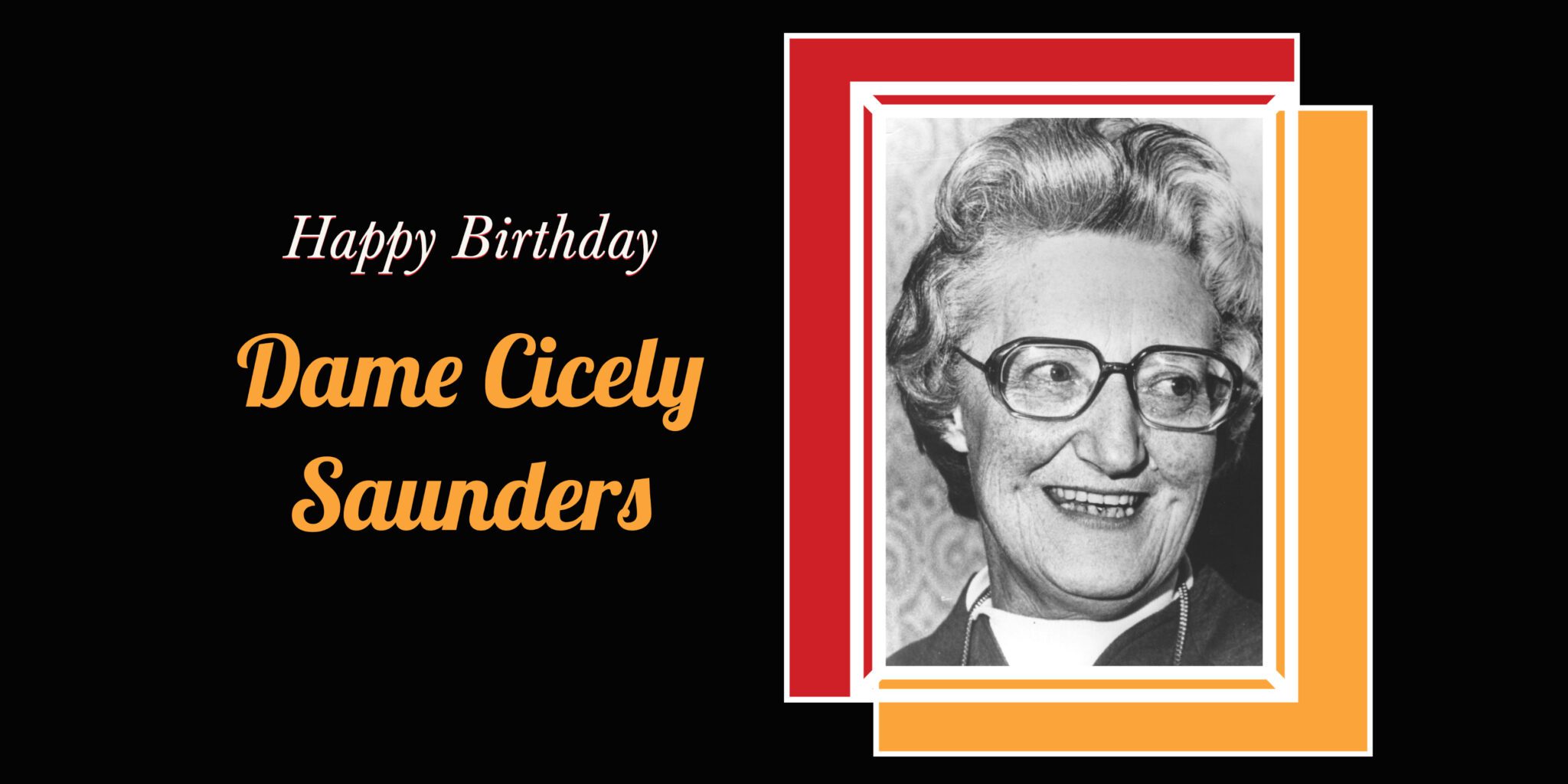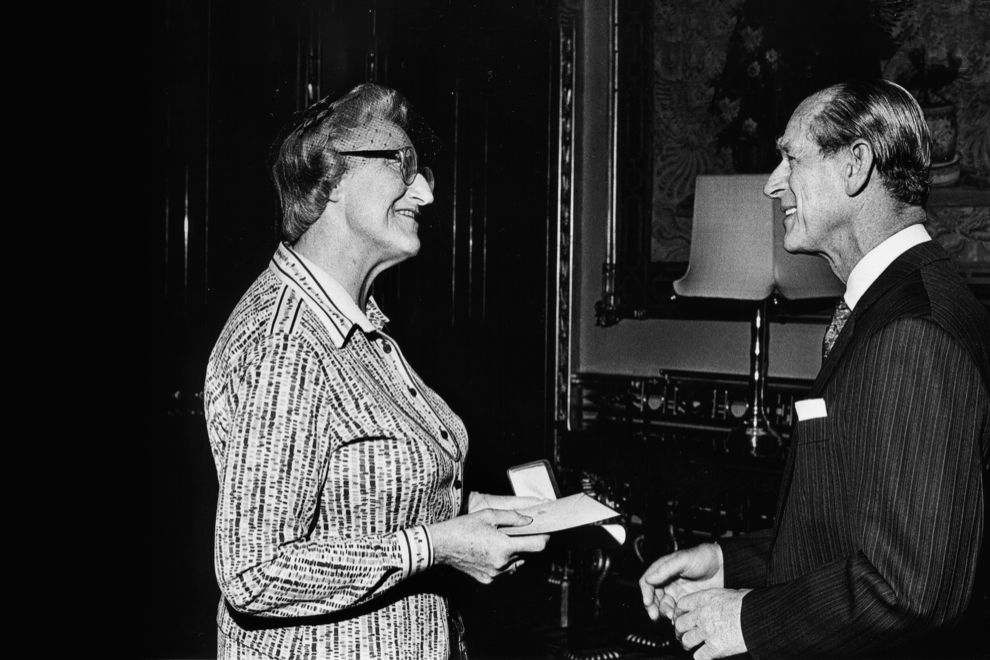Today, we remember Dame Cicely Saunders, who founded the first modern hospice institution.
At a young age, Cicely wanted to become a nurse, but her father disapproved of her desire, so she went to St Anne’s College Oxford. After seeing the destructive impact of the Second World War, Cicely decided to leave school and enrolled as a nurse at St Thomas’ Hospital. Following the war, she returned to St. Anne’s and in one year completed her degree and became a Lady Almoner. During her time as a Lady Almoner and then working in hospice care as a volunteer nurse, she was involved with the aftercare for terminal illnesses and became close with some of her patients. It was then she realized a patient’s pain and suffering could be contained, which inspired the idea of a specialized hospice. Cicely was told her ideas would not be respected in the medical world unless she was a doctor, so she qualified as a doctor at St. Thomas’ Medical School in 1957. In 1958 she was granted a research scholarship by the Halley Stewart Trust to work on pain control in the terminally ill. In 1967 she founded St. Christopher’s Hospice, the first hospice to connect pain control with passionate care.
We honor her today on her birthday, June 22, by looking back on her thoughts about the impact of hospice care during her acceptance speech given at the 1981 Templeton Prize award ceremony.
-

Dame Cicely Saunders at the Templeton Prize ceremony
“We had to learn to ask some new questions . . . ‘Why has this patient got this pain or other physical symptom?’ ‘What can I do about it when there is no longer any cure for the underlying disease?’ ‘Why is this family reacting as it is and how can they be helped to use the time left to resolve their problems?’ ‘How do we ease the pain of parting so that even that has within it the seeds of new growth?’
These questions are being asked more often and some of the answers we have tried to suggest, based on our 14 years of work in the wards, in the homes around since the Domiciliary Team began work in 1969 and by our Clinical Research Fellows, are all becoming part of what is termed ‘received knowledge’. When every article and teaching round about a particular disease includes a section on how to help those for whom curative treatment fails, we will have attained our aims.
But this wonderfully generous award is for progress in religion — as the Foundation has written ‘for a fresh look at the omnipresence of the spirit and of the spiritual resources available to man’. The challenge was to establish a new hospice as a religious and medical foundation bringing together science and the spiritual dimension. David Tasma was searching for meaning at the end of his life and, quietly and privately, made his peace with the God of his fathers. I was so strongly convinced that he had done so that I knew that the Hospice was his window and had to be equally quiet and open. Yet it had to be sufficiently sure of its own foundations to develop a climate in which anyone could be helped, as David was, to turn trustfully to what he believed to be the truth. The people who gradually came together over the years brought with them a variety of approaches and we were shown that our community had to be composed of the unlike, of different types of Christians, of Jews and agnostics, all held together by the strength of their commitment to serve the patients.
Effective symptom control can give patients and their families freedom from the fact and the fear of pain. This freedom is to be used, as we have seen many times, used for family reconciliations, for deepening relations and for the sorting out of beliefs and memories that can help others say, with Pope John XXIII, ‘My bags are packed — I can go with a tranquil heart at any moment’.”
— Cicely Saunders, 1981. Read the full speech.

